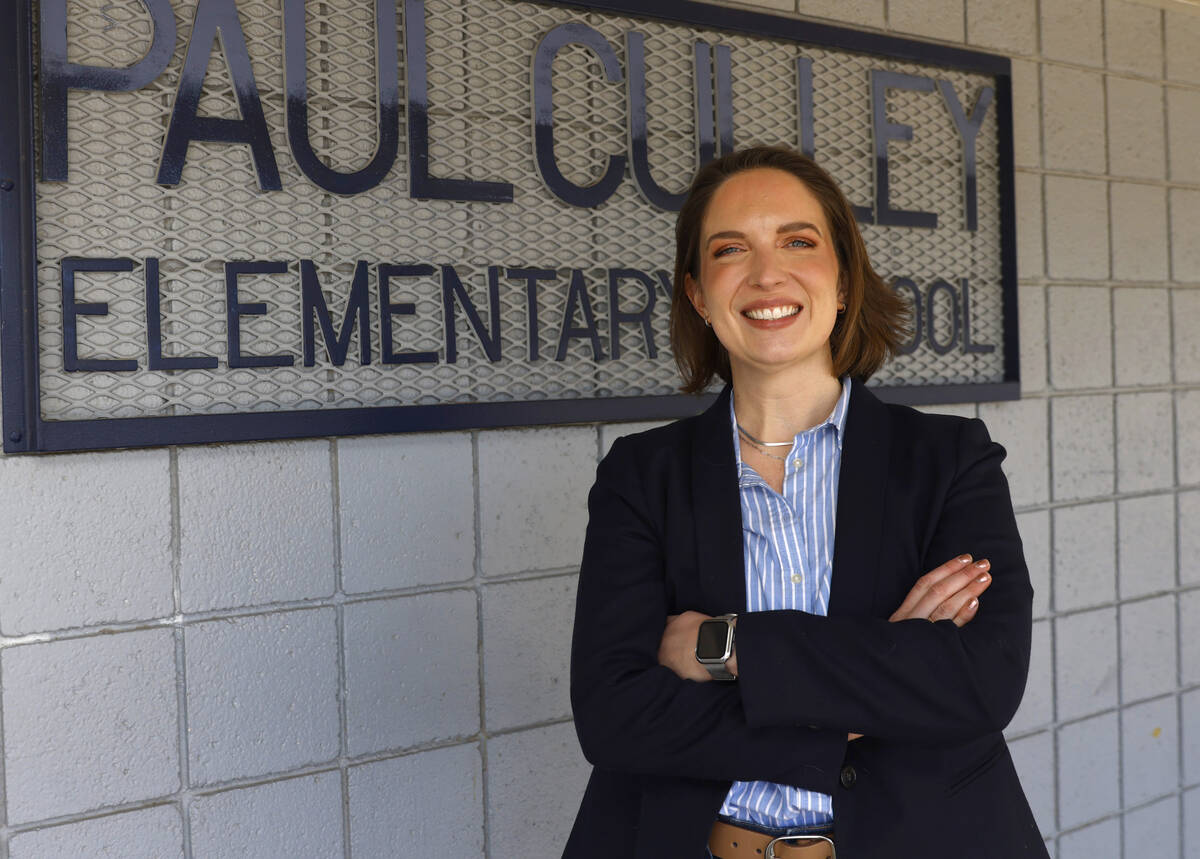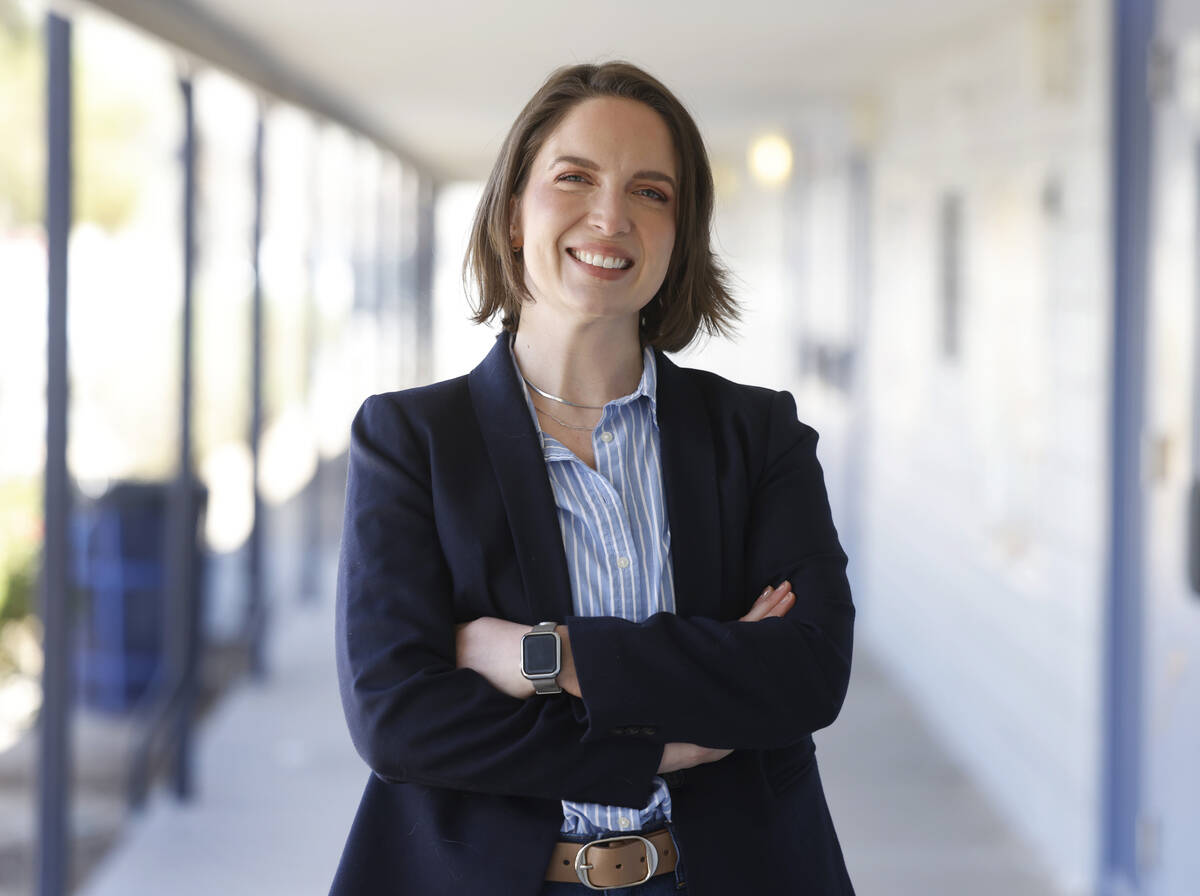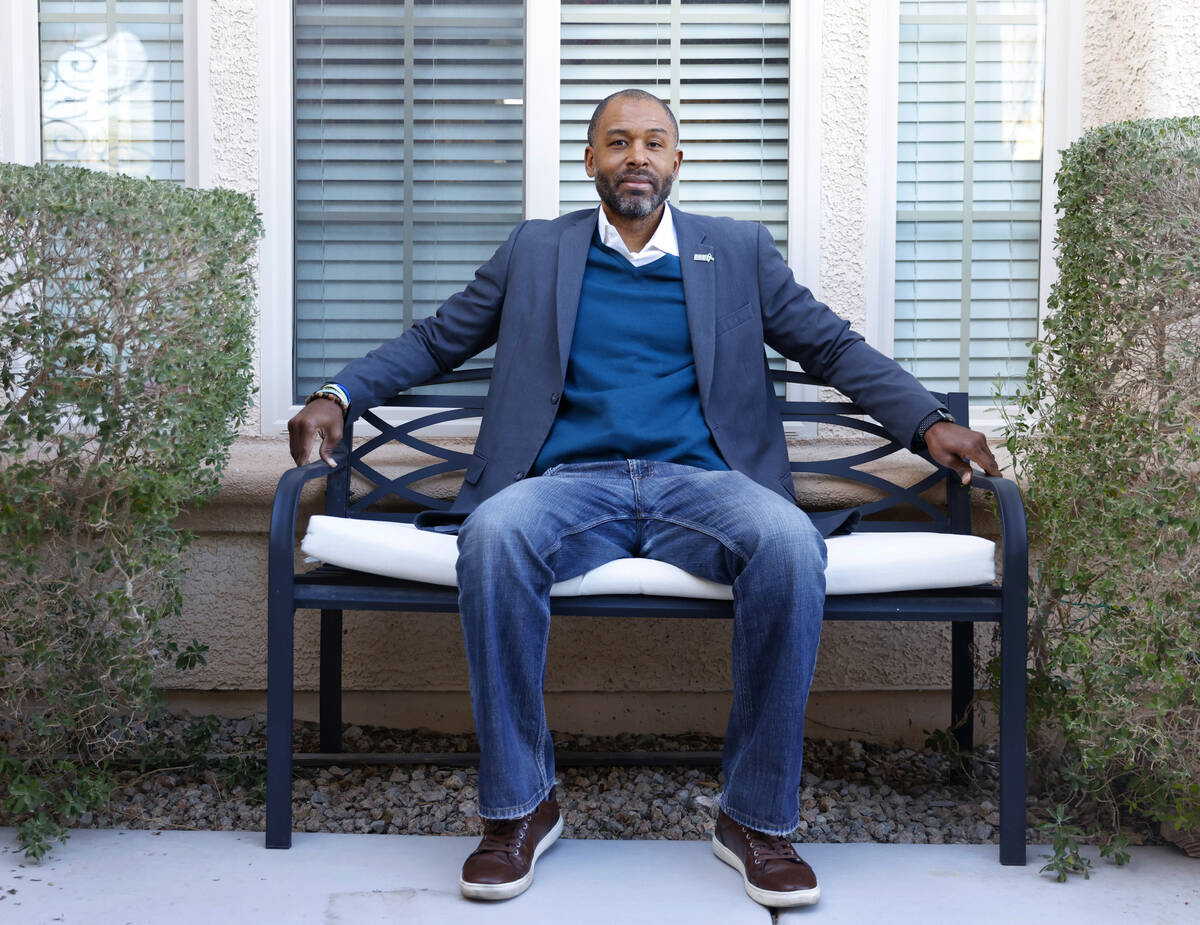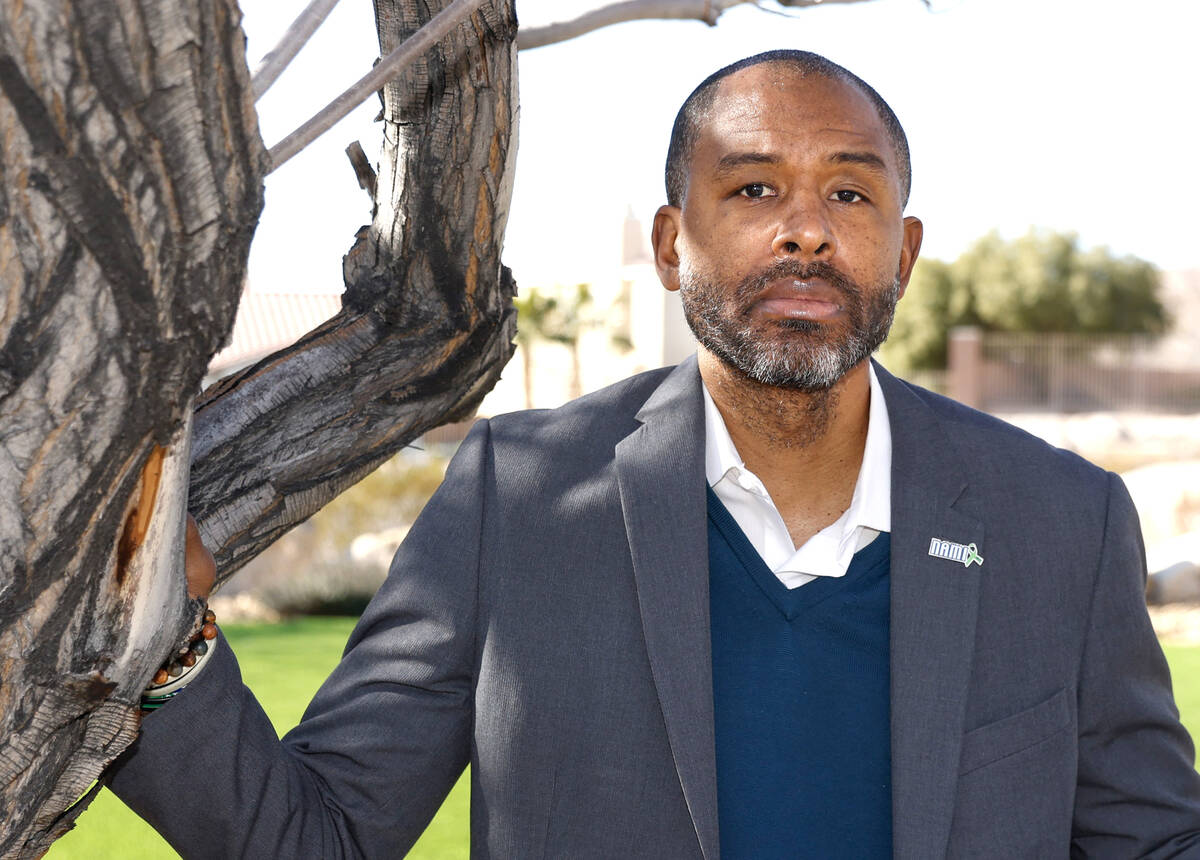CCSD soon won’t pay for some mental health services after COVID funds dry up




Mental health professionals are worried that the sunsetting of federal COVID-19 relief money will hurt the ability of students and families in the Clark County School District to find mental health care.
The loss of the funds will mean that, starting with the 2024-25 school year, individual schools will be left with the option of offering certain programs but only if they can find a way to cover the cost.
Jessica Shearin, a school psychologist at three CCSD elementary schools and president of the Nevada Association of School Psychologists, predicted the end of the funding will have a “cascading effect.”
And without Care Solace, a free service that connects students, their families and district employees with local mental health providers, “I think we’re going to see a huge spike in need and a delay in services,” she said.
Care Solace is among the pandemic-era programs that will no longer be funded districtwide. It has been offered since August 2021.
With the federal funds expiring June 30, “this service will no longer be funded centrally,” the district said in a Jan. 19 statement to the Las Vegas Review-Journal.
“Each school principal can utilize school-based funding to provide Care Solace and other pandemic-related services with funding from their strategic budgets,” it said.
But Jordan Wenger, a school psychologist and Clark County Education Association executive board member, said it’s “really concerning” that the district isn’t prioritizing mental health and is expecting school administrators to fill the gap.
Federal relief money is ending
The district received nearly $778 million through the American Rescue Plan Elementary and Secondary School Emergency Relief funds, known as ESSER, in 2021.
The district said in a Jan. 23 statement to the Review-Journal that it “very publicly communicated that programs, personnel, and projects funded with those monies would be reviewed for continuation past the funding deadline.”
School administrators were notified earlier this year that programs such as Apex Learning online courses and tutorials, online assessment system Edulastic and Carnegie Learning implementation managers won’t be centrally funded next school year, the statement said.
The district said that those programs and others — such as ESSER- supported services from nonprofit Boys Town Nevada and federal Title IV-funded Safe School Professionals, who are social workers or other mental health professionals — “may still be funded with school-based funds if a school chooses to continue these programs.”
In December, the school board approved an annual ESSER use of funds report. It shows more than $28.1 million was budgeted for mental health services.
The district said it spent more than $2.07 million in federal relief money on Care Solace services specifically.
If contracted Safe School Professionals are no longer on campuses, others will be left to pick up the pieces, Wenger said.
“We’re already stretched thin in terms of mental health professionals in the school, so that’s only going to stretch us even further,” she said.
The changes also will limit student and family access to services, said Wenger, who is currently assigned to two elementary schools.
Seeking a solution
Care Solace is working with individual schools in the district to try to execute a “continuation of service,” said Anita Ward, chief growth officer for the company.
“The schools do love and value what we have to offer for their students,” she said.
Many of the schools are continuing with Care Solace, Ward said, but she didn’t have an exact number.
The company, based in the San Diego area, provides services to more than 900 school districts nationwide. That includes the Clark and Washoe county school districts in Nevada.
Nationwide, Care Solace is partnering with mayors and community leaders, who have access to additional funds such as opioid settlement money, Ward said.
The company is also talking with a number of foundations, both in Nevada and nationally, that may step in to support the offering in schools, she said.
As a school psychologist, Wenger submits referrals with Care Solace to help families access mental health services.
She said she has seen about a 50-50 success rate with the service, noting it has been “very successful” in some cases.
But some parents work multiple jobs and have a limited ability to take phone calls during the day or can’t take time off to go to appointments, she said.
Wenger said the absence of Care Solace districtwide is going to have a “very large impact.”
Some individual schools may know about certain mental health resources, while others don’t.
“There’s not going to be a lot of consistency of knowledge in community resources,” Wenger said.
Before the district began using Care Solace, it was like “who knows who” with connecting families with resources, Shearin said, adding that schools also didn’t have a comprehensive list of community providers.
With Care Solace, families typically receive a call the same day a referral is submitted, Shearin said, noting it has been “life-changing for so many people.”
“Care Solace has become so integrated into my work and I know so many people utilize that service,” she said. “It has connected so many people with providers.”
Because Care Solace is used districtwide, Shearin said she has been able to use it seamlessly, including being able to submit referrals for staff members or students who attend different campuses than the ones where she works.
If it’s up to individual schools whether to fund it, that’s going to make it “very tricky” for school mental health professionals who work at multiple sites, Shearin said.
For students and families in crisis who need immediate answers, Shearin said she thinks they’ll tap into immediately available resources such as schools and hospitals that are already under strain.
She noted that trying to figure out health insurance and finding mental health care by yourself can be tough. Having a resource navigating it for you, she said, is “invaluable.”
School budget decisions
Rebecca Garcia, an administrator for the “CCSD Parents” Facebook group, is a member of three school organizational teams — two high schools and one middle school in central and east Las Vegas.
Garcia said all three school organizational teams are including Care Solace in their budget for next school year, noting it’s something principals wanted.
“That was a pretty universal choice in the budget,” she said.
Another topic of discussion among the school organizational teams is how the school district will continue to pay for Panorama Education — another mental health-related program it started using during the pandemic, she said.
A survey through Panorama Education is given three times a year to students in third through 12th grades and district employees to gauge well-being.
When students “raise their hand” on the survey indicating they want to talk with someone, it’s back on the school to provide the resources, but in some cases, they don’t have them, Garcia said.
Garcia also cited a shortage of mental health professionals, so some schools may have the budget to hire one, but can’t fill the position.
Care Solace is a positive but reactive option, Garcia said, noting that it’s ideal to have adults on campuses who can get to know students and work on prevention.
She also said schools often send out lists of resources, noting she receives a weekly email, but about 90 percent of the time, it’s not necessarily actionable.
When families do need support, she said, “it’s really hard to get what you actually need.”
‘Our kids are still suffering’
The sunset of federal funding and the impact on mental health services for students and families comes as access is already a struggle.
Suicide rates in Nevada have improved, which is positive, but “our kids are still suffering” and resources for individuals and families are still hard to access, said Sheldon Jacobs, a licensed marriage and family therapist in Las Vegas.
“So we’re still in this environment where people are struggling (with) mental health and they’re not receiving the supports and services they need and deserve,” he said.
Jacobs is on the national board for the National Alliance on Mental Illness and is chair of the organization’s Southern Nevada chapter. He’s also a board member for Hope Means Nevada, which aims to eliminate youth suicide.
The state has seen a paradigm shift in terms of mental health and how it’s being addressed, Jacobs said, noting the topic is being discussed a lot in the state Legislature and by community leaders.
With funding running out for Care Solace in the school district, it’s going to have a large impact on the community compared with other states, Jacobs said, noting the state already lacks some resources and is behind the curve.
Jacobs said he knows a couple of school social workers who are responsible for three or four schools.
“That’s a big issue,” he said, “because you’re not going to meet the needs when they’re stretched that thin.”
Contact Julie Wootton-Greener at jgreener@reviewjournal.com. Follow @julieswootton on X.
























